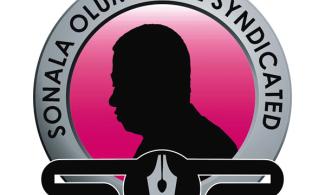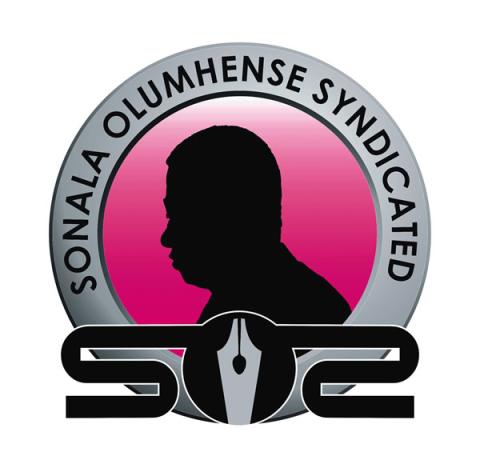
For the second time, the Senate has refused to confirm the appointment of Ibrahim Magu as the chairman of the EFCC.
Not only is this politically-embarrassing to President Muhammadu Buhari, it brings to question his true commitment to combatting corruption.
The following spaghetti-tangle of relationships is how we got here. On the weekend of October 7, 2016, the Department of State Services (DSS), claiming to be fighting corruption, invaded the homes of several judges around the country. Seven, including four judges of the Supreme Court, were arrested.
DSS, Nigeria’s so-called secret police, is led by Lawal Musa Daura, President Muhammadu Buhari’s kinsman who was appointed in July 2015.
The president’s response to the fallout was to order the EFCC to take over the matter so that investigations may be “more professionally handled.”
Buhari did not take any action against Daura. He did not even ask him to hand the file over to the EFCC. This is important because it was learned that DSS had originally been asked to work with the EFCC on the matter, an order Daura ignored.
Still, at a time that institutions are being seen as the men who head them, Buhari had implicitly indicted his kinsman. In the light of subsequent events, that was not a slight that Daura forgot.
And then, into his very hands fell the fate of Magu, who was preferred to him. In mid-December, the Senate, citing a “security report,” refused to confirm Magu’s appointment. It was Daura’s report, and he must have been licking his lips at the opportunity to dig in the knife, and twist it.
But Buhari, with no reference to that report, and apparently still in his boys-please-work-together mode, merely sent a letter to the Senate appealing for Magu to be confirmed.
That was in January. This month, the Daura-inspired Senate rejected Magu again.
This drama might have been extremely hilarious but for the profound irony of it. The Senate of Nigeria, far and away the most corrupt and backward legislature in a modern republican democracy, rejecting an anti-corruption fighter!
To be clear: I have had some harsh words for the EFCC under Buhari, but that is not to denigrate its efforts. It is the best anti-corruption card played by Buhari so far, if not the only one.
Clearly, the Senate, stinking from years of decay and layers of no standards, low standards, certificate-forgers, foreign-exchange speculators, pedophiles, influence peddlers, dubious former governors and money-doublers, is not an outpost of transparency and accountability.
But here we are, the Senate, riding an inside horse with an agenda called Daura, claiming to possess the moral mountain top.
Here we are, the Senate, led by a man with the most sordid ethical baggage in a nation with an odoriferous ethical baggage, claiming it will not confirm Magu because he is not ethical.
But Nigerians know it is fear of Magu—not respect for principle or his integrity deficit—that is at play. Senator Goodswill Akpabio is reported to have said: “Magu wants us to confirm him so that he can use some of us for peppersoup.”
Akpabio has denied those words, to be fair to him, but he has not discharged them. It is a shame of historic proportions that even the most compromised Senators did not choose to recuse themselves.
How ridiculous is the so-called DSS fig leaf being used by the Senate to cover its nakedness?
I do not hold Magu to be an angel, but it is a matter of public record that some of the key officers who worked closely with Nuhu Ribadu, on several high-profile cases were victimized when he was succeeded by Mrs. Farida Waziri.
They included Magu, who returned after that nightmare to work with Ibrahim Lamorde, who succeeded Waziri. Daura felt that fact indicated Magu’s “culpability in the allegations of corrupt tendencies of the Lamorde-led EFCC.”
Lamorde had corrupt tendencies? A few Nigerians dared say so, but neither Waziri not Lamorde has ever been investigated.
Curiously, Lamorde’s last public ‘appearance’ was a cameo when the issue of an Aisha Buhari who had wired $170,000 to US congressman Jefferson in June 2002 entered the news last year.
“I can tell you authoritatively say that the Aisha Buhari named in that case is not President Buhari’s wife…” he said, vanishing again before Daura could say “corrupt tendencies.”
But which were the high-profile cases for which Magu was victimized? They included those of the infamous James Ibori and David Edevbie, a former commissioner of his who conveniently became Principal Political Secretary to President Umaru Yar’Adua.
No, Yar’Adua was no angel, contrary to the impression he created with his famous declaration of assets in 2007. For one, he did not declare the $10m house in London which was exposed by American government sources. I look forward to the day these anti-corruption winds are brave enough to seize that property for Nigeria.
Convicted of money-laundering in the UK, Mr. Ibori returned last month following his jail term. Despite the order declaring him wanted in Nigeria still being in effect, he has not been held.
Why? Because Daura said so. According to a report by THEWILL last week, Daura—in a deal brokered by Abba Kyari, the Chief of Staff to President Buhari—chose complicity.
“THEWILL gathered from sources that Kyari, who has had long-term relations with Ibori, lobbied [Daura] to be in the clear upon his return,” the investigation reported. “[Kyari]…also coopted the Attorney-General of the Federation, Mr. Abubakar Malami into the plot to give Ibori a pass just as the Chairman of the Presidential Advisory Committee on Corruption, Professor Itse Sagay, pressed the argument in Ibori’s favour that it would be wrong to detain and try him again in Nigeria for graft having been convicted and jailed in London for same offence.”
Among others, this means Sagay is hardly the angel for which he has been mistaken. With what authority does he now crusade against corruption in others?
Upon arrival in Abuja, Ibori met with Daura in his office. In the secret-police equivalent of the ‘bow and go’ culture by which the PDP Senate gained infamy, the DSS chief later told journalists the event was “a short debriefing session and to also welcome him back to his fatherland.”
The sequence ties in with a Premium Times report on December 16 which revealed that for months, a powerful team in the government which included Daura, Kyari, and Interior Minister Abdulrahman Dambazau, had canvassed not just for Magu’s rejection by the Senate, but his removal.
These are the internecine and cynical relationships that now define not only Buhari’s anti-corruption claims, but his government.
None of this is about Magu; it is about Buhari. Obviously, the Senate will never confirm anyone who has the strength of character to wield the anti-corruption hammer. It is the law of self-preservation.
The issue is what Buhari’s real agenda is. Like corruption itself, a war against corruption is a blood sport, not chess. You don’t tread softly; you don’t pull punches, you don’t retreat, you don’t hesitate, you don’t compromise.
If Nigeria doesn’t kill corruption, corruption will kill Nigeria? It now seems the hunter has become the hunted. The monster has arrived in the palace and is eating the children.
Who will tell the king?
[email protected]
Twitter: @SonalaOlumhense
